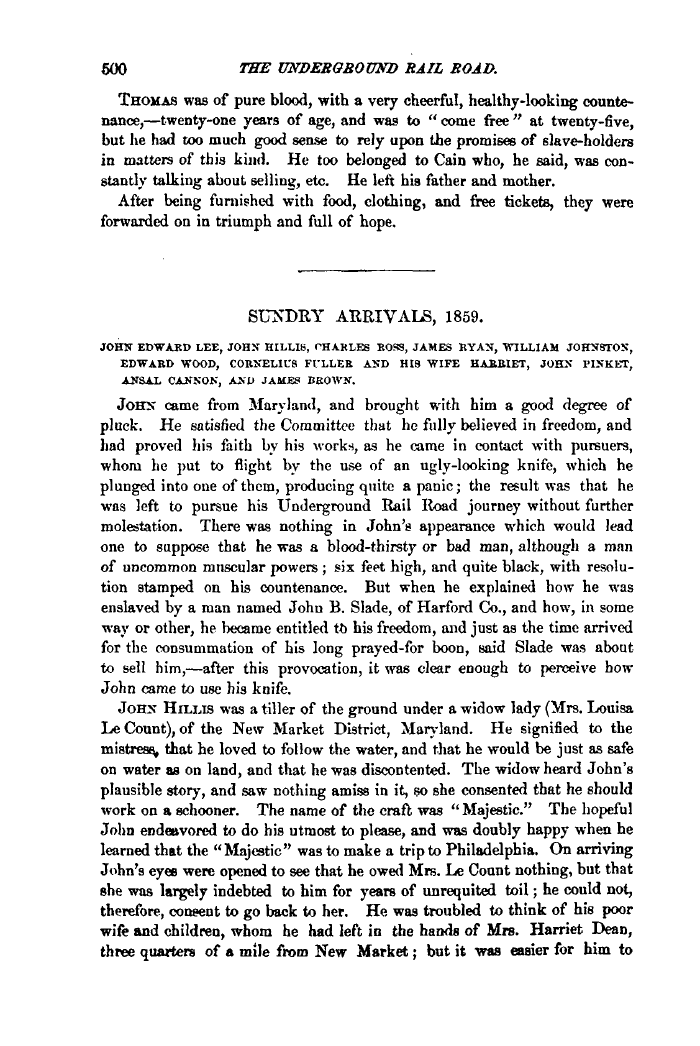 |
||||
 |
||||
| 600 THE UNDERGROUND RAIL ROAD. THOMAS was of pure blood, with a very cheerful, healthy-looking countenance,—twenty-one years of age, and was to " come free " at twenty-five, but he had too much good sense to rely upon the promises of slave-holders in matters of this kind. He too belonged to Cain who, he said, was constantly talking about selling, etc. He left his father and mother. After being furnished with food, clothing, and free tickets, they were forwarded on in triumph and full of hope. SUNDRY ARRIVALS, 1859. JOHN EDWARD LEE, JOHN HILLI8, CHARLES BOSS, JAMES KYAS, WILLIAM JOmfSTOS, EDWARD WOOD, COBUEL1US FPLLER AND HIS WIFE HAHB1ET, JOHX PIXKET, AUSAL CAli'KOK, AJftl JAMJSS BEOWJT. JOHS came from Maryland, and brought with him a good degree of pluck. He satisfied the Committee that he fully believed in freedom, and had proved his faith by his works, as he came in contact with pursuers, whom he put to flight by the use of an ugly-looking knife, which he plunged into one of them, producing quite a panic; the result was that he was left to pursue his Underground Rail Road journey without further molestation. There -was nothing in John's appearance which would lead one to suppose that he was a blood-thirsty or bad man, although a man of uncommon muscular powers; six feet high, and quite black, with resolution stamped on his countenance. But when he explained how he was enslaved by a man named John B. Slade, of Harford Co., and how, in some way or other, he became entitled tt> his freedom, and just as the time arrived for the consummation of his long prayed-for boon, said Slade was about to sell him,—after this provocation, it was clear enough to perceive how John came to use his knife. JOHX HIIJMS was a tiller of the ground under a widow lady (Mrs. Louisa Le Count), of the New Market District, Maryland. He signified to the mistresq, that he loved to follow the water, and that he would be just as safe on water as on land, and that he was discontented. The widow heard John's plausible story, and saw nothing amiss in it, $o she consented that he should work on a schooner. The name of the craft was " Majestic." The hopeful John endeavored to do his utmost to please, and was doubly happy when he learned that the "Majestic" was to make a trip to Philadelphia. On arriving John's eyee -were opened to see that he owed Mrs. Le Count nothing, but that she was largely indebted to him for years of unrequited toil; he could not, therefore, consent to go back to her. He was troubled to think of his poor wife and children, whom he had left in the hands of Mrs. Harriet Dean, three quarters of a mile from New Market; but it \na easier for him to |